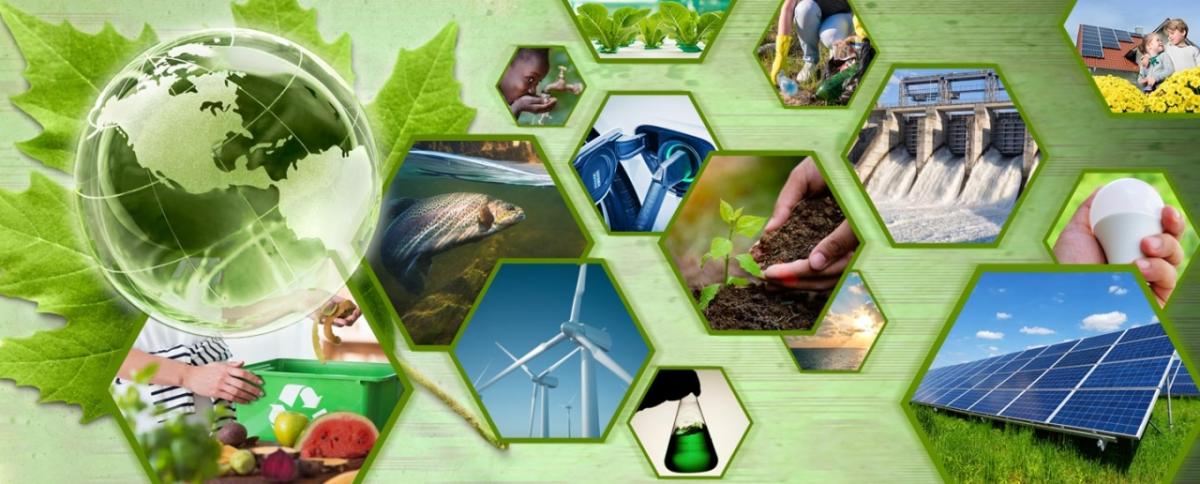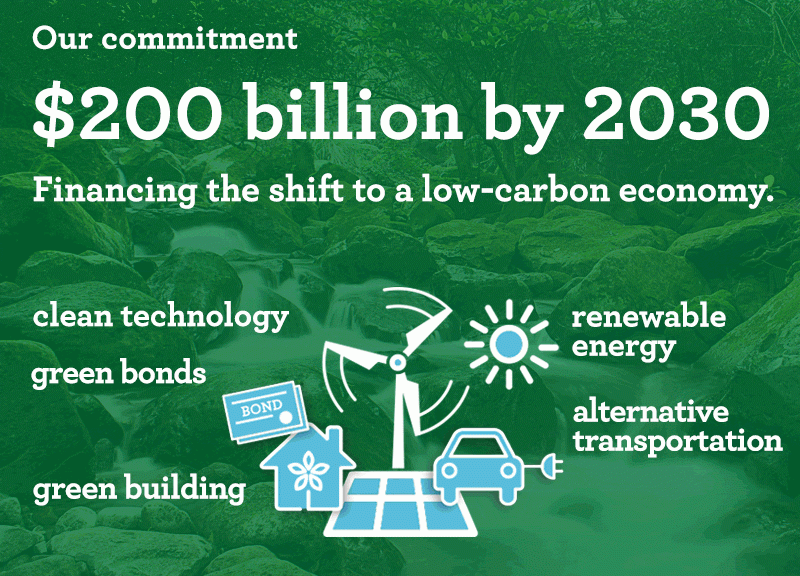Wells Fargo Commits $200 Billion Toward Sustainable Financing
The company’s pledge is designed to promote the shift to a low-carbon economy. More than $100 billion will go toward financing clean technology and renewable energy projects.
Wells Fargo commits $200 billion toward sustainable financing
Wells Fargo will provide $200 billion in financing through 2030 to businesses and projects that support the transition to a low-carbon economy, CEO Tim Sloan announced Thursday during his keynote address at a CEO Investor Forum in San Francisco.
More than 50 percent of the financing will be focused on companies and projects that directly support the transition to a low-carbon economy, including clean technologies, renewable energy, green bonds, and alternative transportation.
The remainder of the financing will support companies and projects focused on sustainable agriculture, recycling, conservation, and other environmentally beneficial activities.
Wells Fargo is also committing to sector-leading transparency: providing clear communications on wellsfargo.com about the types of transactions that account for the $200 billion commitment, disclosing the carbon intensity of its portfolio, and providing robust progress and impact reporting. Additionally, Wells Fargo plans to be more visible in the sustainable financing space, engaging with sector peers and other organizations interested in advancing a common approach to responsible, sustainable finance.
“Wells Fargo is committed to taking a leadership role in supporting the transition to a low-carbon economy and promoting environmental sustainability through our products and services, operations and culture, and philanthropy,” Sloan said. “With this commitment, we are combining a strong financial goal with enhanced transparency and disclosure practices that we believe will lead to sector-wide progress on responsible, sustainable finance.”
A history of support
The announcement is another step in Wells Fargo’s ongoing commitment to clean energy and renewable energy financing. In 2015, five years early, Wells Fargo met its goal to provide $30 billion in loans and investments to support a “greener economy” by 2020. In 2016, projects owned in whole or in part by Wells Fargo produced more than 9 percent of all wind and solar photovoltaic energy generated in the U.S., and in 2017, the company invested $12 billion in sustainable businesses.
Wells Fargo is also a financial services leader in sustainability within its properties. In 2017, the bank began meeting 100 percent of its global electricity needs with renewable energy. It also met its 2020 carbon-reduction goal of 45 percent from a 2008 baseline and made significant progress toward other sustainability goals focused on water and energy efficiency, waste reduction, and Leadership in Energy and Environmental Design, or LEED, certification.
The company also creates opportunities for innovators to develop ideas that promote sustainability. Wells Fargo’s award-winning Innovation Incubator — a $30 million program funded by the Wells Fargo Foundation and co-administered by the U.S. Department of Energy’s National Renewable Energy Laboratory — speeds the path to market for promising clean technologies and entrepreneurs focused on energy efficiency and sustainability. A signature piece of the program is the opportunity for certain technologies to beta test at certain Wells Fargo locations on their way to the commercial marketplace.
As the largest lender to the traditional energy sector, Wells Fargo works closely with its power-generation and fossil-fuel customers in their own transitions to low-carbon activities and operations.
“We take an ecosystem approach to supporting clean technology,” said Mary Wenzel, head of Sustainability and Environmental Affairs at Wells Fargo. “We work to advance new technologies by providing financing and other services, testing and adopting new technologies within our footprint, and providing philanthropic support to leading accelerators, incubators, and universities focused on clean technology development and entrepreneurship.”
For more stories about how Wells Fargo is helping to make our communities better, please visit Wells Fargo Stories at https://stories.wf.com/?cid=intpart_wfs_3bl_1801_0.



